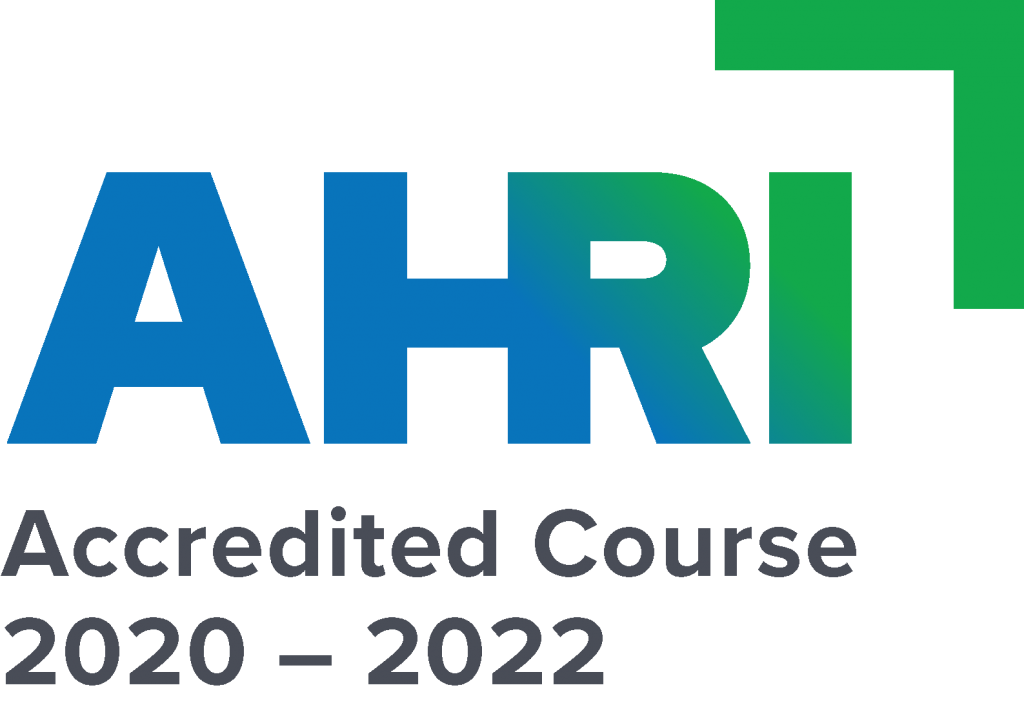
The Importance of Human Resource Management
The importance of human resources within a company cannot be undervalued – the department plays a key part in how a business performs. Their duties are far more complex than simply hiring, firing and paying employees. This begs the question, what is the role of human resources?
A HR department is instrumental in ensuring the stability of a company through people management, individual, and group training. It is their role to keep abreast of changing company requirements and to effectively facilitate the relationship between managers and employees.
For Managers
Managers have a lot on their plates. From their perspective, employees are just one piece of the puzzle. By contrast, an HR Department’s sole focus will rest on the well being and improvement of its people. The HR department will, therefore, be across any updates to employee regulations, and be able to implement change across the board. Small labour law changes, such as increasing the minimum salary cap, can require widespread changes.
Human Resource Management means being well-versed in the often complex and confusing procedures of taking on and letting go of employees. Each new team member who comes on board is an opportunity to progress the business, so these decisions should be made with extreme care and consideration. Through advertising roles, shortlisting candidates, conducting meaningful interviews, checking qualifications and ensuring fit for the company, the HR department will simplify the process of expanding.
But the procedure doesn’t end once a candidate is hired. In order to make the best use of this new recruit, the HR department will arrange an induction and ongoing training schedule to place the employee in the best position for success and workplace satisfaction. This will cover everything from the values of the company, to using everyday equipment and systems, as well as making sure that the new employee gets on well with their new workmates. Candidates may be hired for their potential, but without the correct Human Resource Management structures in place, there’s no way for them to reach it.
Managers require training and access to adult education courses such as the Diploma of Human Resource Management (BSB50320), just like anyone else. HR teams are able to conduct or arrange training and coaching for top-level workers, like department heads, to equip them with the skills they need to most effectively manage their teams. Reinforcing these key management and problem-solving skills will minimise the frequency at which higher management needs to intervene.
We're excited to offer students studying Human Resources with the College for Adult Learning either a Associate (Full Fee) or Professional level membership to the AHRI.
As a member, you'll have access to valuable resources to support your studies, be able to join programs and events to help you become job-ready, and attend free member-only networking forums to build your professional network and learn about specialist HR topics. (Terms and Conditions apply)
For Employees
The HR department is a crucial support structure for employees within an organisation. It represents a safe space where employees can voice their concerns, thoughts and suggestions without threat, and can be assured that their comments will be heard by the people who matter.
In workplaces of all sizes, there will be times when people don’t see eye to eye. Be it creative differences, conflicting morals, or downright personality clashes, the HR department is responsible for mediating these issues. Focusing on clear communication and acknowledging all parties’ rights, the HR team will fairly and quickly dissolve any inter-employee conflict. In instances of employee consequences, the HR department will also act as overseers, ensuring that any firing is deserved and abides my legal requirements.
When managers undergo adult education courses, the benefits trickle down to the employees who are guided by motivated, well-trained leaders. By undertaking a course such as the Diploma of Human Resource Management (BSB50320) at the College for Adult Learning, employees can perform more productively, find purpose in their work, and improve their workplace satisfaction. The importance of human resources cannot be underestimated.
Why Become a HR Manager
Trends in Human Resources suggest the industry is experiencing an exciting phase of growth and change. Professionals within this field can expect to enjoy a progressive and fulfilling career. Over the past ten years, the number of HR positions has grown from 43,600 to 47,900 and is expected to continue to grow.
But before we dive in, it’s important to know what is the role of Human Resources, and who is best suited to the top spots. Underpinned by a fundamental ability to communicate and engage with people from all backgrounds, HR is a distinctly strategic role which encompasses policy, process and practice. Professionals in this sector have a responsibility to individual employees of all levels, managers, and the wider needs of the organisation.
There are so many benefits of being a HR manager, including the opportunity to contribute to widespread organisational harmony, to advance employees and help them enjoy their work, and to play a strategic role in company structure and operations. If a business succeeds because of its people, then its people succeed because of a dedicated HR team. Below are some of the most popular reasons why people choose to pursue a career in HR.
Promising Prospects
HR is a sought-after career field. More and more, businesses and managers are appreciating the crucial role that professional people managers play in the construction of a robust organisation. They seek out those with higher qualifications with experience in the profession. Salaries are on the rise, and employment in the wider industry is thought to rise by 20% in the next eight years.
A Healthy Paycheck
Due to a significant amount of responsibility, HR managers can expect to be rewarded for their work. This higher level role offers people the chance to work alongside managers and CEOs, while still fighting for the rights of individuals within the organisation. If you can hold your own in the same room as the company leaders, then HR could be a promising career for you.
A Chance to Make a Difference
The chance to make a difference in people’s lives is the driving factor for a lot of careers, from surgeons to scientists. While HR managers might not change the world, they certainly do have the potential to shift the dynamic of an organisation for the better. By providing constant support to employees, facilitating open communication and always keeping an eye out for what’s best for them, HR professionals can achieve significant fulfilment. Smaller businesses, non-profits and charities are other options for those who aren’t focused on climbing the corporate hierarchy, and instead, want to focus on doing good.
Travel the World
HR is a career that is as flexible as you. While businesses differ from place to place, the fundamentals of your role and your relationship with them will never waiver. Whether you travel within the divisions of a single organisation which take you around the world or simply want to move overseas and find work in your industry, HR training equips graduates with the skills and adaptability to find work wherever they are.

Trends in Human Resource Jobs
The trends in Human Resources tell us that at this time there are many benefits of being a HR manager. With above average job openings, including both employment growth and turnover (workers leaving their chosen field or indeed the workforce).
Thirteen years ago, we began to see sharp growth in the industry. Over the past eight years, this growth has slowed to a steadier rate. By comparison, employment in the sector is expected to grow moderately, with 102,400 professionals predicted to be employed by 2022. Seek suggests that this growth may be fuelled by three key factors, including employers wanting to (a) attract and (b) retain top talent, which is (c) culturally aligned.
Key Statistics
Human Resource professionals work throughout Australia, with the highest numbers in New South Wales (33%), Victoria (25.4%), and Queensland (18.5%). Key industry sectors include administrative and support sectors, public administration and safety, and other services.
Salary Expectations
Most HR professionals are full-time workers, with an average of 42 hours per week. Professionals’ wages begin lower and rise as they gain more experience, with an average of $1,662 per week. Those who complete further qualifications to become a HR manager can expect to earn more than $500 more per week on top of their current salary.
According to the 2017 Hays Salary Report, HR professionals can enter the sector in HR admin roles, averaging $60,000 per year in Melbourne, and progress through several significant rungs. Managers in businesses with under 250 employees are looking at $100,000, while those in businesses with over 1000 employees can seek closer to $150,000.
Employable Skills
The Seek Industry Spotlight on Human Resources and Recruitment, released in March 2017, highlights the following skills as being the most sought after in the current job market:
- Know how to be future focused
- Understand business cycles
- Build skills needed to achieve company strategy
- Identify resources needed for a growing company
- Understand how to innovate when establishing or changing workplace culture
- Know workplace legislation, e.g.: bullying and harassment, mental health
- Create training content and training plans
- Spot trends and gaps in leadership development, and respond accordingly
- Lead candidate engagement and improve recruitment systems, including scoping of roles
Take Away Messages
The key takeaways which we have learned in 2017, are that there are plenty of positions available across Australia, with most focused on the east coast. HR, recruitment, IT and communications, mining and resources represent the most popular industries offering senior positions ($150,000+) in the field. Finally, qualified candidates can expect to enjoy ongoing progression, and salary advancement to match.
In a promising future market, there is no better time to begin your preparations for a career in HR with a Diploma of Human Resource Management (BSB50320) or one of the other specific adult education courses available through the College of Adult Learning.
We are proud to announce that from 2022 all CAL graduates of the Diploma of Human Resource Management (BSB50320) will have their qualification accredited by AHRI.
Your Career in Human Resources
Do you want to learn more about HR skills employers demand, emerging job roles and salaries, and recent industry insights?
Discover your career in human resources.
HUMAN RESOURCES CAREER PAGE







